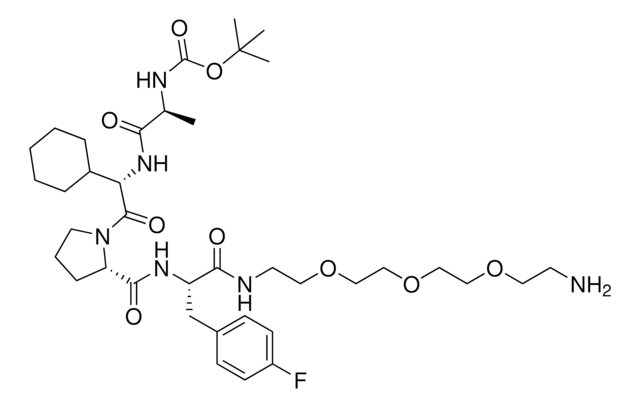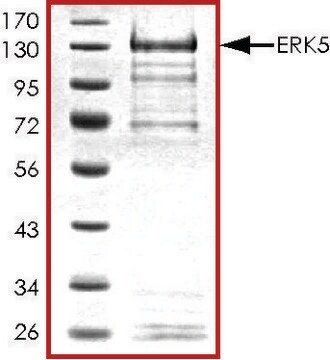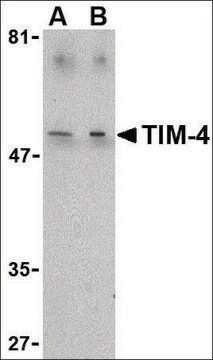AB3230
Anti-Low Density Lipoprotein Antibody, copper oxidized
serum, Chemicon®
Synonym(s):
LDL
Sign Into View Organizational & Contract Pricing
All Photos(1)
About This Item
UNSPSC Code:
12352203
eCl@ss:
32160702
NACRES:
NA.41
Recommended Products
biological source
rabbit
Quality Level
antibody form
serum
antibody product type
primary antibodies
clone
polyclonal
species reactivity
human
manufacturer/tradename
Chemicon®
technique(s)
ELISA: suitable
immunohistochemistry: suitable
western blot: suitable
shipped in
wet ice
target post-translational modification
unmodified
Gene Information
human ... LDLR(3949)
Specificity
Reacts strongly to fully oxidatized modifications of LDL including Cu2+-oxidized LDL, MDA-LDL, HOCL-LDL but not to other oxidized proteins like MDA-HSA, HOCL-HSA, MDA-HDL, HOCL-HDL (below detection limit). The reaction of native LDL was weak, but clearly detectable (approx. 20%). Minimally oxidized LDL gave a strong binding signal (>80%).
Immunogen
Epitope: copper oxidized
Fully Cu2+-oxidized LDL.
Application
Anti-Low Density Lipoprotein Antibody, copper oxidized is an antibody against Low Density Lipoprotein for use in ELISA, WB, IH.
Research Category
Metabolism
Metabolism
Research Sub Category
Lipid Metabolism & Weight Regulation
Lipid Metabolism & Weight Regulation
Western Blot
Immunohistochemistry: 1:50-1:500
ELISA: 1:500-1:5,000
Optimal working dilutions must be determined by the end user.
Immunohistochemistry: 1:50-1:500
ELISA: 1:500-1:5,000
Optimal working dilutions must be determined by the end user.
Physical form
Rabbit serum. Lyophilized. Contains no preservative. Reconstitute with 100 μL of sterile distilled water.
Storage and Stability
Maintain lyophilized material at 2-8°C for up to 12 months. After reconstitution maintain at -20°C in undiluted aliquots for up to 6 months. Avoid repeated freeze/thaw cycles.
Legal Information
CHEMICON is a registered trademark of Merck KGaA, Darmstadt, Germany
Disclaimer
Unless otherwise stated in our catalog or other company documentation accompanying the product(s), our products are intended for research use only and are not to be used for any other purpose, which includes but is not limited to, unauthorized commercial uses, in vitro diagnostic uses, ex vivo or in vivo therapeutic uses or any type of consumption or application to humans or animals.
Not finding the right product?
Try our Product Selector Tool.
Storage Class Code
11 - Combustible Solids
WGK
WGK 1
Flash Point(F)
Not applicable
Flash Point(C)
Not applicable
Certificates of Analysis (COA)
Search for Certificates of Analysis (COA) by entering the products Lot/Batch Number. Lot and Batch Numbers can be found on a product’s label following the words ‘Lot’ or ‘Batch’.
Already Own This Product?
Find documentation for the products that you have recently purchased in the Document Library.
Deepa Sankaran et al.
Nephron. Experimental nephrology, 106(4), e122-e128 (2007-07-12)
Dietary soy protein and flax oil retard kidney disease progression when initiated in the early stages of disease in several experimental models, including the Han:SPRD-cy rat. However, individuals with kidney disease often do not become aware of their condition until
Malcolm R Ogborn et al.
Lipids, 43(9), 783-791 (2008-07-17)
Conjugated linoleic acid (CLA) is anti-proliferative and anti-inflammatory in the Han:SPRD-cy rat model of kidney disease. We used different doses of CLA and examined effects on renal histological benefit, the renal PPARgamma system and hepatic and renal levels of CLA
Dietary soya protein during pregnancy and lactation in rats with hereditary kidney disease attenuates disease progression in offspring.
Cahill, LE; Peng, CY; Bankovic-Calic, N; Sankaran, D; Ogborn, MR; Aukema, HM
The British Journal of Nutrition null
Deficiency in the metabolite receptor SUCNR1 (GPR91) leads to outer retinal lesions.
Favret, S; Binet, F; Lapalme, E; Leboeuf, D; Carbadillo, J; Rubic, T; Picard, E; Mawambo et al.
Aging null
Tadashi Uramatsu et al.
Biological & pharmaceutical bulletin, 36(8), 1271-1277 (2013-08-02)
Stroke-prone spontaneously hypertensive (SHRsp) rats develop severe hypertension resulting in renal injury. We investigated apoptosis inhibitor of macrophages (AIM) expression in nephrosclerotic rats and the involvement of AIM in olmesartan (OLM)- and azelnidipine (AZN)-induced decreases in the number of macrophages
Our team of scientists has experience in all areas of research including Life Science, Material Science, Chemical Synthesis, Chromatography, Analytical and many others.
Contact Technical Service








